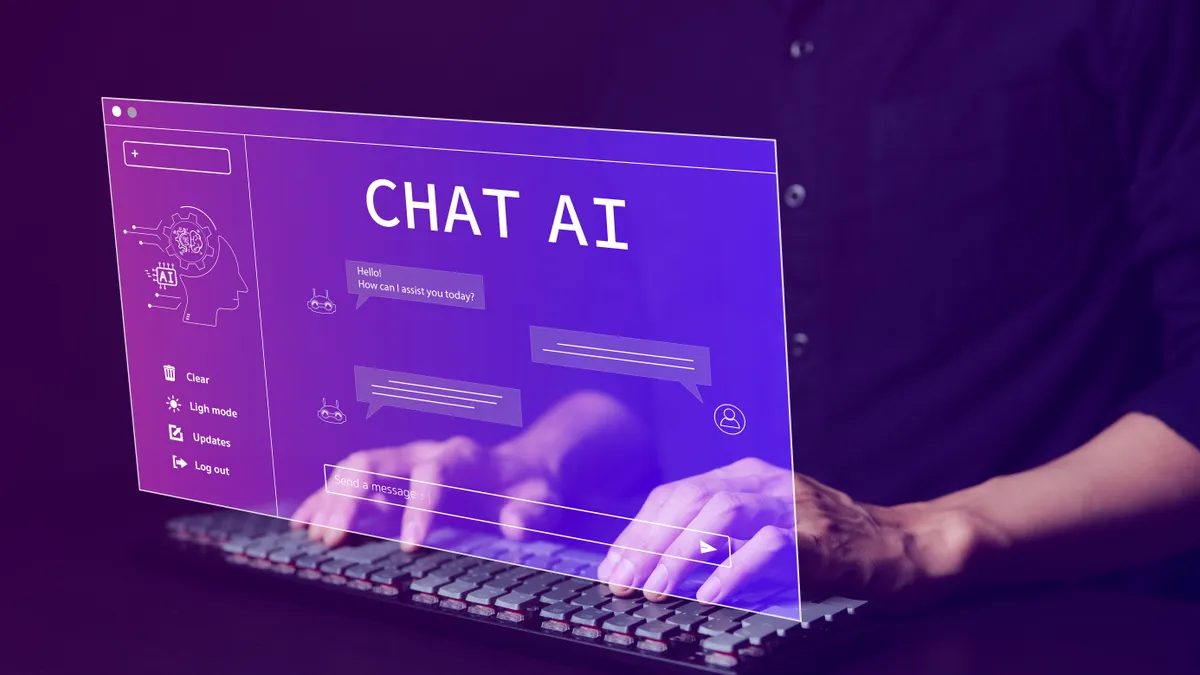Dive Brief:
- More than half of U.S. employees (56%) use generative artificial intelligence at work even though three out of four companies lack safeguards against AI risks such as inaccuracy, cyberattack and intellectual property infringement, the Conference Board said.
- Fifty-five percent of employees believe that generative AI matches the work quality of an experienced or expert human, and 63% said the technology boosts their productivity, the Conference Board found in a survey of more than 1,000 employees completed last month. Only 26% of workers said their companies have set rules for use of the tools.
- “Generative AI is already delivering work product that meets or exceeds the quality of employees with years of experience,” Diana Scott, leader of the Conference Board’s Human Capital Center, said in a statement. Survey respondents “appear to be embracing AI as a solution for repetitive or tedious parts of their work, freeing up bandwidth for more productive and valuable uses of their time.”
Dive Insight:
CFOs are plowing capital into generative AI to gain a competitive edge from improved efficiency, innovation and market insights, according to several studies in recent months.
“Generative AI’s meteoric rise can be compared to the launch of social media, the smartphone and the internet,” Forrester said in a report this month. “The technology’s wide applicability across industries and occupations will drive massive growth.”
Spending on generative AI will annually grow 36% on average until 2030, capturing 55% of the market for AI software, Forrester predicted.
By 2030, CFOs will channel $79 billion annually into generative AI automation tools that boost productivity, especially in security, health and content marketing, Forrester said.
CFOs will annually spend $42 billion by the end of this decade on general tools for research, writing and summarization, according to Forrester. More than half of the spending will go toward chatbot and communications platforms, achieving “substantial improvements in customer and employee experience.”
Four out of five CEOs have integrated AI into their products or services or plan to do so within the coming year, EY said in a report on a CEO survey in July. “No corporate leader can ignore AI in 2023.”
One third of employees said their companies have deployed generative AI for at least one task, with nearly one quarter of C-suite executives reporting that they use the tools for work, McKinsey found in a worldwide survey of 1,684 employees across a broad range of industries.
Software engineering, marketing and sales, product and service development, and service operations such as customer care and back-office support create about 75% of the annual value from generative AI, according to McKinsey.
At the same time, companies using generative AI face significant risks from its vulnerabilities and unguided use, Forrester and other organizations said.
“Forrester expects short-term adoption and productivity gains to be curtailed by the technology’s current limitations,” including “a lack of regulatory clarity, questions around intellectual property rights, model ethics and bias, and model ‘hallucinations.’”
Only 21% of respondents reporting AI adoption say their companies have implemented policies governing employees use of generative AI, McKinsey said, loosely aligning with findings by the Conference Board.
Survey respondents identified the top five risks of generative AI as inaccuracy, cybersecurity, intellectual property infringement, regulatory compliance and an inability to explain how the technology comes to its conclusions, according to McKinsey.
“These are still early days for managing gen AI-related risks, with less than half of respondents saying their organizations are mitigating even the risk they consider most relevant — inaccuracy,” McKinsey said.












